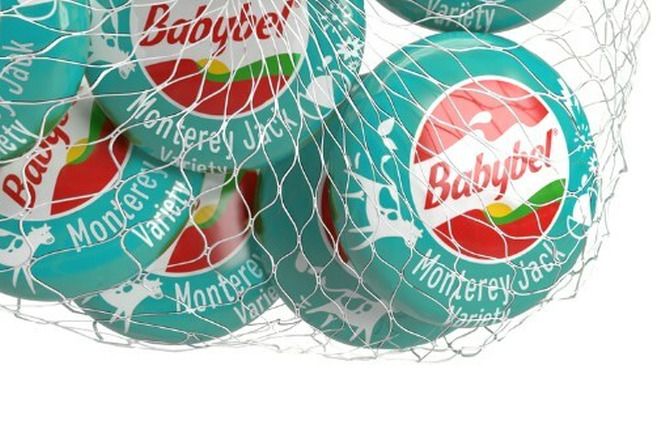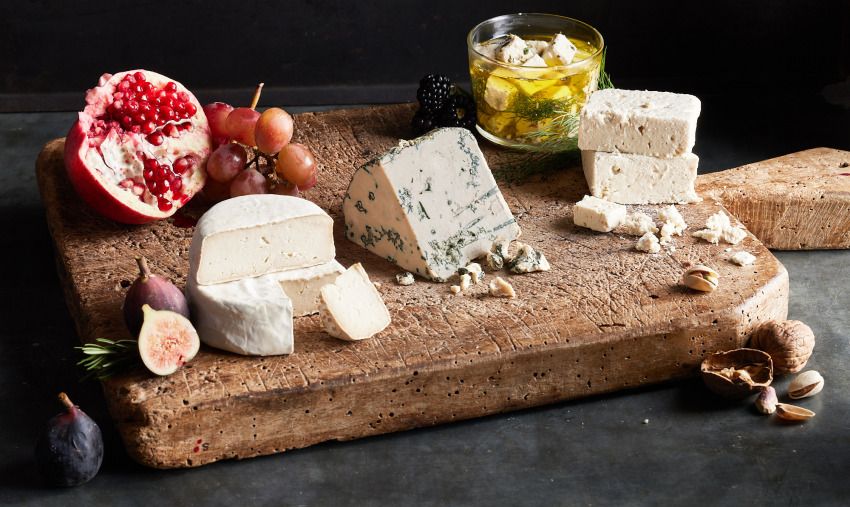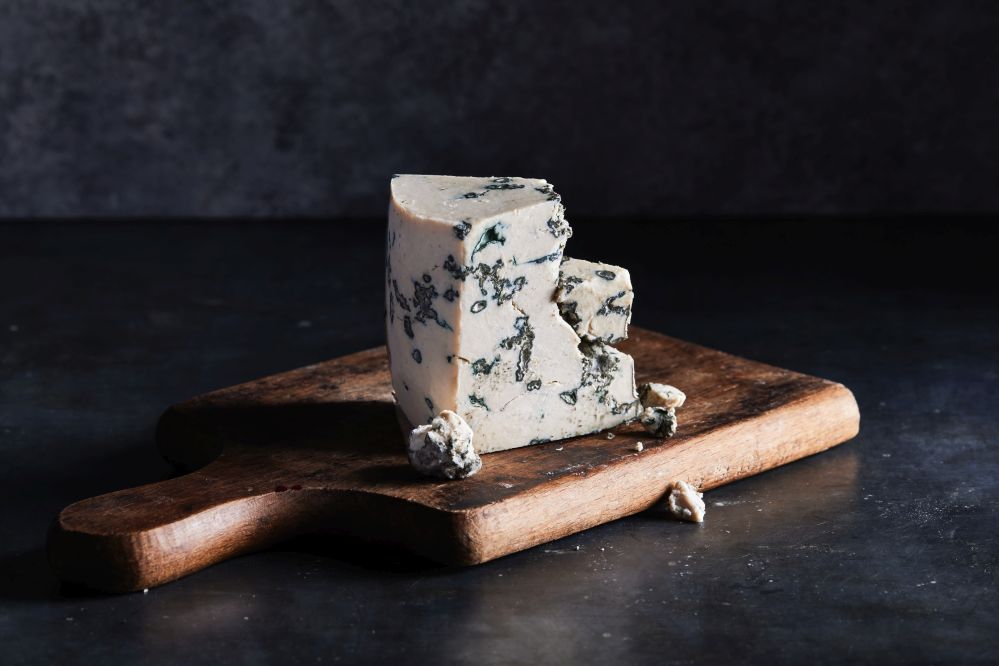Plant-based cheesemaker Climax Foods has been abruptly disqualified from the prestigious Good Food Awards (GFA) on the eve of the awards ceremony on April 29 having been told it was a winner three months ago.
In an email sent to the Berkeley-based startup on January 26 and seen by AgFunderNews, Climax was informed (confidentially, as all the winners have been in advance) that its plant-based blue cheese was a 2024 Good Food Awards Winner and encouraged to make plans to attend the awards ceremony in Portland, Oregon, on April 29 as part of a “weekend of festivities.”
The only plant-based firm to ever secure such a prize (Climax is competing directly with dairy cheeses), the award was likely to generate a lot of publicity for the firm, claimed founder and CEO Dr. Oliver Zahn, who said there had been pushback when dairy cheesemakers heard an alt-dairy firm had been selected as a finalist.
On April 22, a week before the awards, Zahn received an email from the organizer (The Good Food Foundation) to say that it had disqualified Climax Foods because it had been made aware that the firm’s blue cheese contained kokum butter, an ingredient that “may not be FDA GRAS approved,” and that its products were not “retail ready” (Climax products are currently only available in foodservice, and have been approved for this purpose by the California Department of Food and Agriculture).
‘We remain excited that the judges crowned us a winner simply based on how exceptional our product is’
According to Zahn, an astrophysicist-turned foodtech entrepreneur, neither of these requirements were communicated when the company submitted its entry last year. “At the time they took our submission last summer there was no mention of retail or GRAS [Generally Recognized as Safe] requirements.”
Wayback (a digital archive of the web enabling users to see earlier versions of websites) also confirms that at the time of submission, the rules on the awards website made no reference to GRAS ingredients and simply stipulated that products must be “ready for sale” (wording that was retrospectively changed to “retail ready”), he claimed.
He went on to allege that the GRAS requirement was only recently added to the awards website “in direct response to a dairy industry person that contacted them this month to come up with a way to disqualify us.”
As it happened, said Zahn, the samples sent to the GFA judges and to the Good Food Mercantile event last year did in fact contain cocoa butter (which is GRAS), not kokum butter, although it is possible that the sticker on the packaging said kokum butter. However, no one contacted Climax Foods to flag the issue, which could have quickly been addressed and resolved, said Zahn.
‘This could so easily have been rectified if we had been contacted earlier’
He told AgFunderNews: “Kokum butter is a widely-used, safe food ingredient enjoyed in many parts of the world and is particularly popular in Indian cuisine. We liked it because it has a neutral taste and is harder than cocoa butter, but when we started working on retail formulations, we switched to cocoa butter because it wasn’t clear if kokum was GRAS in the US and we didn’t want to have to worry about that, even though it is perfectly safe.”
Noting that the team had already purchased non-refundable flights to attend the awards ceremony in Portland, he added: “I don’t want to get into a fight over this, but it could so easily have been rectified if we had been contacted earlier. But they never contacted us to remedy the situation.
“We would have been happy to send more samples and answer any questions about the ingredients. We have a brilliant and hard working team, and they are the ones most hurt by all of this. We are working hard to bring consumers new tasty, healthy, and sustainable options and we remain excited that the judges crowned us a winner simply based on how exceptional our product is.”
Good Food Foundation: ‘We will disqualify an entry, regardless of timing, if it doesn’t meet the standards’
Sarah Weiner, executive director at the Good Food Foundation, confirmed that the GRAS criteria was “not explicitly stated… until recently,” telling AgFunderNews that, “It is not an issue we have come across in past years, and it was assumed that all ingredients entrants used were generally recognized as safe for consumption in the USA. When we realized it needed to be made explicit to avoid this unfortunate and I’m sure extremely disappointing situation in the future, we updated the rules and regulations. It has always been part of our rules and regulations that the Good Food Foundation reserves the right to update these.”
But she noted: “I’m afraid it is not accurate that the criteria that entries must be retail ready was not communicated on the submission form. It is included with a check box that all entrants must check and pledge to when making a submission.”
She added: “It is unusual but not without precedent that we would disqualify an entry at this point. It is very unfortunate when it happens and we do our very best to avoid it… We will then disqualify an entry if we’ve determined it doesn’t meet the standards and/or rules, regardless of timing.”

‘Plant-based cheeses indistinguishable from their dairy counterparts’
A data-driven startup reverse engineering animal foods and rebuilding them with plants, Climax Foods recently teamed up with Bel Group—the multinational firm behind cheese brands Babybel, The Laughing Cow, and Boursin— to develop plant-based versions of its iconic brands for launch in Europe and the US by the end of 2024, starting with Mini Babybel.
Bel, which has also acquired an equity stake in Climax Foods, aims to co-create plant-based cheeses “indistinguishable from their dairy counterparts” that will be manufactured in Bel factories around the world, said Zahn.
“Everything is on track for global commercialization of the first SKU early next year, which for us is super exciting, but we are also working with other large dairy manufacturers on other products.”
According to Zahn, who uses AI and machine learning to develop recipes and processes, formulating superior plant-based cheese is “not so much about finding some exotic plant that only grows in the Amazon; it’s often about using what’s right in front of us more optimally.”
In the case of the firm’s high-profile ‘plant-based casein’—a plant-based ingredient that can confer the melt and stretch of dairy proteins to cheeses such as mozzarella—he said, “We’re using storage proteins that are found in several seeds and legumes that are not really widely grown, but are certainly not exotic. We then isolate the protein and functionalize it such that it is indistinguishable from the dairy target. We also use no flavor additives, gums, or color agents.”

‘Our core expertise is in formulation intelligence and ingredient discovery’
Climax, which currently sells its blue cheese in about 20 high-end restaurants and has the capacity to supply about 100 without any further capex spend, is performing well at these outlets, but focusing on its partnerships with large companies that have their own manufacturing facilities, he said.
“Building a CPG brand [and manufacturing everything in-house] is tricky, and our core expertise is in formulation intelligence and ingredient discovery. That’s really what the AI is so powerful for, and the ability to very quickly predict how to make many different SKUs, not just in cheese, but in other dairy products and even beyond dairy.”
He added: “Of course, when you partner with somebody else to commercialize products, you don’t get all the profit, but it’s not like we’re working with co-manufacturers we have to pay money for. We’re working with a big dairy manufacturer and we’re optimizing our process to get it to fit into their manufacturing process directly. We get the distribution and marketing for free and we get a share of the revenues.”
For the plant-based casein ingredient, he said, “This could go a number of ways. So for the products where we do need casein ingredients, a manufacturer or producer could license the tech from us, plus we can also co-develop recipes with them.”
He added: “The level of the [storage] protein expression varies across different seeds and legumes. The ones with the highest expression levels are not grown on a very large scale currently but certainly could be.”
Ultimately, he said, “What’s exciting is that we have zero compromise products that taste the same as dairy cheese and can be produced with technology that can be scaled using existing infrastructure, achieving cost parity with dairy using 100% plant-based ingredients with no regulatory barriers.”





